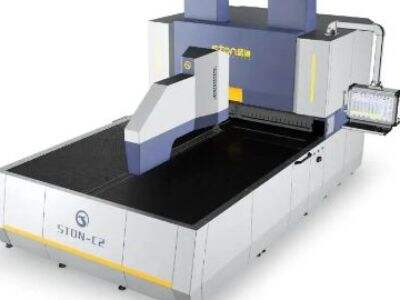هل خطر ببالك من قبل كيف تصبح الألواح المعدنية على شكلها النهائي الحاسم مثل أجزاء السيارة أو غلافات الحواسيب؟ تعمل ماكينات التثقيب على تنفيذ هذا العملية! ماكينة التثقيب هي آلة فريدة تستخدم القالب والقالب المعاكس لقص أو تشكيل ألواح معدنية. عندما تضرب المعدن بأداة ذات انطباع، فإنه يضغط ويخلق الشكل. يمكن تقسيم ماكينات التثقيب إلى فئتين: السervo turret والتثقيب التقليدي. لذلك، لمساعدتك في معرفة أيهما قد يكون الأنسب لك، سنراجع في هذا النص الفروق الرئيسية بين النوعين.
اختيار ماكينة تثقيب لمؤسستك
عندما ترغب في الاستثمار في ماكينة ثقب لعملك، هناك بعض العوامل الحاسمة التي تحتاج إلى أخذها في الاعتبار قبل اتخاذ القرار. ابدأ بعدد القطع التي تحتاج إلى تصنيعها. هذا يُعرف بحجم إنتاجك. شيء يجب أن تبحث عنه إذا كنت تحتاج إلى تصنيع عدد كبير من القطع بسرعة هو ماكينة ثقب ذات برج سيرفو. صُممت لتكون مخصصة للإنتاج بكميات كبيرة، وفي العديد من الحالات يمكن استخدامها لإنتاج عدد كبير من القطع في وقت قصير.
الخطوة التالية هي حول نوع المعدن الذي ستستخدمه. قد تتطلب الأنواع المختلفة دقة مختلفة في القطع. على سبيل المثال، قد تفضل ماكينة ثقب ذات برج سيرفو إذا كنت تعمل مع معادن تتطلب قطعًا دقيقًا جدًا. وأخيرًا، احرص على تحديد مدى الدقة المطلوبة في القطع. إذا كنت بحاجة إلى قطع دقيق جدًا، فإن ماكينة الثقب ذات البرج السيرفو تقوم بذلك بشكل ممتاز. لكن بالنسبة لكميات أقل من القطع، ولما لا تحتاج فيه إلى الكثير من الدقة، فقد تكون ماكينة الثقب التقليدية مقبولة تمامًا.
الفروقات بين برج السيرفو ومقعّمات الطوابع القياسية
لنلقِ الآن نظرة أقرب على الفروقات بين نوعي مقعّمات الطوابع. تحتوي مقعّمات الطوابع ذات البرج السيرفو على محرك خاص لتحديد موقع الطابعة. هذا يعني أنها يمكن أن تصنع قطعًا دقيقة ومتسقة دائمًا. تحتوي على برج أدوات يمكنه حمل مجموعة متنوعة من الطوابع، مما يسمح باستخدامها لإنشاء مجموعة واسعة من أشكال وحجوم الثقوب بسرعة. هذا مفيد جدًا إذا كنت بحاجة إلى إنشاء قطع مختلفة ذات تصاميم متنوعة.
ومع ذلك، تستخدم مكابس التثقيب التقليدية نظام ثقب完全不同 لإحداث فتحات في ألواح المعدن. يمكنها القيام بذلك إما من خلال أنظمة هيدروليكية أو أنظمة ميكانيكية. تستغرق وقتًا أطول ولا تكون دقيقة مثل مكابس البرج ذات المحرك الكهربائي، لكنها أقل تكلفة بكثير. وبالمثل، يعني هذا أنها خيار رائع بالنسبة لك إذا كنت تعمل على نطاق أصغر ولا تحتاج إلى إنتاج العديد من الأجزاء المختلفة. لا يمكن للمكابس التقليدية مثل هذه ثقب أكثر من فتحة أو شكل واحد في الوقت نفسه، لذا فهي ليست أدوات ماكنية متعددة الاستخدام مثل مكابس البرج ذات المحرك الكهربائي، لكنها تقوم بالعمل بشكل جيد.
المزايا والعيوب لكل نوع
في هذا المقال، سنناقش الفوائد والعيوب لكل نوع من أنواع ماكينات التثقيب. تمتلك ماكينات التثقيب ذات البرج السيرفو العديد من المزايا. فهي أيضًا أكثر دقة، مع القدرة على إنتاج أجزاء ملائمة بشكل محكم. كما أنها متعددة الاستخدامات جدًا، قادرة على التعامل مع مجموعة واسعة من المهام والأشكال. كما يمكنها تحقيق معدل إنتاج أعلى، مما يعني أنه يمكنك إنتاج كميات كبيرة من الأجزاء بسرعة. كما أنها تتيح إعدادًا أسرع - مما يمكن أن يوفر الوقت والمال في عمليات الإنتاج.
ومع ذلك، فإن ماكينات التثقيب ذات التوربين السيرفو لديها بعض العيوب. عادةً تكون هذه الآلات أكثر تكلفة للشراء مقارنة بماكينات التثقيب التقليدية؛ وإذا كان لديك ميزانية محدودة، فهذا قد يكون عيبًا. كما أنها أكثر تكلفة في الصيانة، مما يتطلب الكثير من الوقت والمال من جانبك لضمان استمرار تشغيل كل شيء.
رغم ذلك، فإن مكابس الضرب التقليدية لديها مزاياها. فهي أرخص سعرًا، مما يعني أنها ستكون في متناول الشركات الصغيرة أو الناشئة. كما أنها تحتاج إلى صيانة أقل من مكابس البرج ذاتية التشغيل، لذلك لن تضطر للقلق بشأن إصلاحات معقدة. ومع ذلك، هناك بعض العيوب. فهي أقل دقة من مكابس البرج ذاتية التشغيل التي نستخدمها، مما يعني أن الأجزاء التي تشكلها قد لا تتناسب بشكل مثالي مع بعضها البعض. كما أنها أبطأ في التشغيل ولا يمكنها إنشاء عدد كبير من أشكال الثقوب الفريدة.
ما يجب مراعاته عند اتخاذ القرار
العوامل التي يجب أخذها بعين الاعتبار: عند التفكير في اختيار مكابس البرج ذاتية التشغيل مقابل المكابس التقليدية، هناك بعض الأمور التي ستحتاج إلى التفكير فيها. وهي:
حجم الإنتاج: إذا كنت بحاجة إلى إنتاج كمية كبيرة من القطع بسرعة، فإن مكبس البرج ذاتي التشغيل سيكون خيارك الأفضل على الأرجح.
نوع المادة: بعض المواد تتطلب قطعًا دقيقًا جدًا، وبالتالي في هذه الحالات يكون مكبس البرج ذاتي التشغيل هو الأفضل.
بالإضافة إلى ذلك، يمكن لآلة ثقب الأبراج ذات المحركات صنع ثقوب في أشكال معقدة وأنواع مختلفة من الثقوب بسهولة ودقة أكبر مقارنة بالماكينات التقليدية.
الدقة: إذا كنت ترغب في أن تكون أجزاءك دقيقة جدًا، فإن آلة ثقب الأبراج ذات المحركات ستكون إجابتك.
الميزانية: الماكينات التقليدية لثقب الأبراج تكون غالبًا أرخص، لكنها لن تعمل بنفس الكفاءة أو توفر لك المرونة التي توفرها آلة ثقب الأبراج ذات المحركات.
في النهاية، عند اختيارك بين آلة ثقب الأبراج ذات المحركات والماكينة التقليدية، عليك مراعاة جميع هذه العوامل. اأخذ حجم الإنتاج الخاص بك بنظر الاعتبار، نوع المعدن الذي ستعمل عليه، مدى دقة القطع المطلوبة، ميزانيتك، والأشكال التي تريد أن تكون عليها الثقوب. هذا يعني أنه إذا كنت تحتاج إلى دقة عالية ومرونة ويمكنك إنتاج عدد كبير من الأجزاء، فيجب أن تختار آلة ثقب الأبراج ذات المحركات. وإذا كنت ترغب في إنفاق أقل وأنت تنتج عددًا قليلًا جدًا من الأجزاء، فقد تكون الماكينة التقليدية أكثر ملاءمة لاحتياجاتك.
للحصول على برج سيرفو عالي الجودة ومرشحات تشكيل تقليدية ذات عمر طويل وموثوقة، تفضل بزيارة STON. تواصل معنا اليوم لتعرف المزيد عن كيفية أن تكون آلاتنا مفتاح نجاح عملك!
 EN
EN
 AR
AR
 HR
HR
 CS
CS
 DA
DA
 NL
NL
 FI
FI
 FR
FR
 DE
DE
 EL
EL
 HI
HI
 IT
IT
 JA
JA
 KO
KO
 PT
PT
 RO
RO
 RU
RU
 ES
ES
 SV
SV
 ID
ID
 SR
SR
 SK
SK
 SL
SL
 UK
UK
 VI
VI
 HU
HU
 TR
TR
 FA
FA
 AF
AF
 MS
MS
 GA
GA
 IS
IS
 AZ
AZ
 EU
EU
 KA
KA
 BN
BN
 LO
LO
 LA
LA
 MN
MN
 NE
NE




